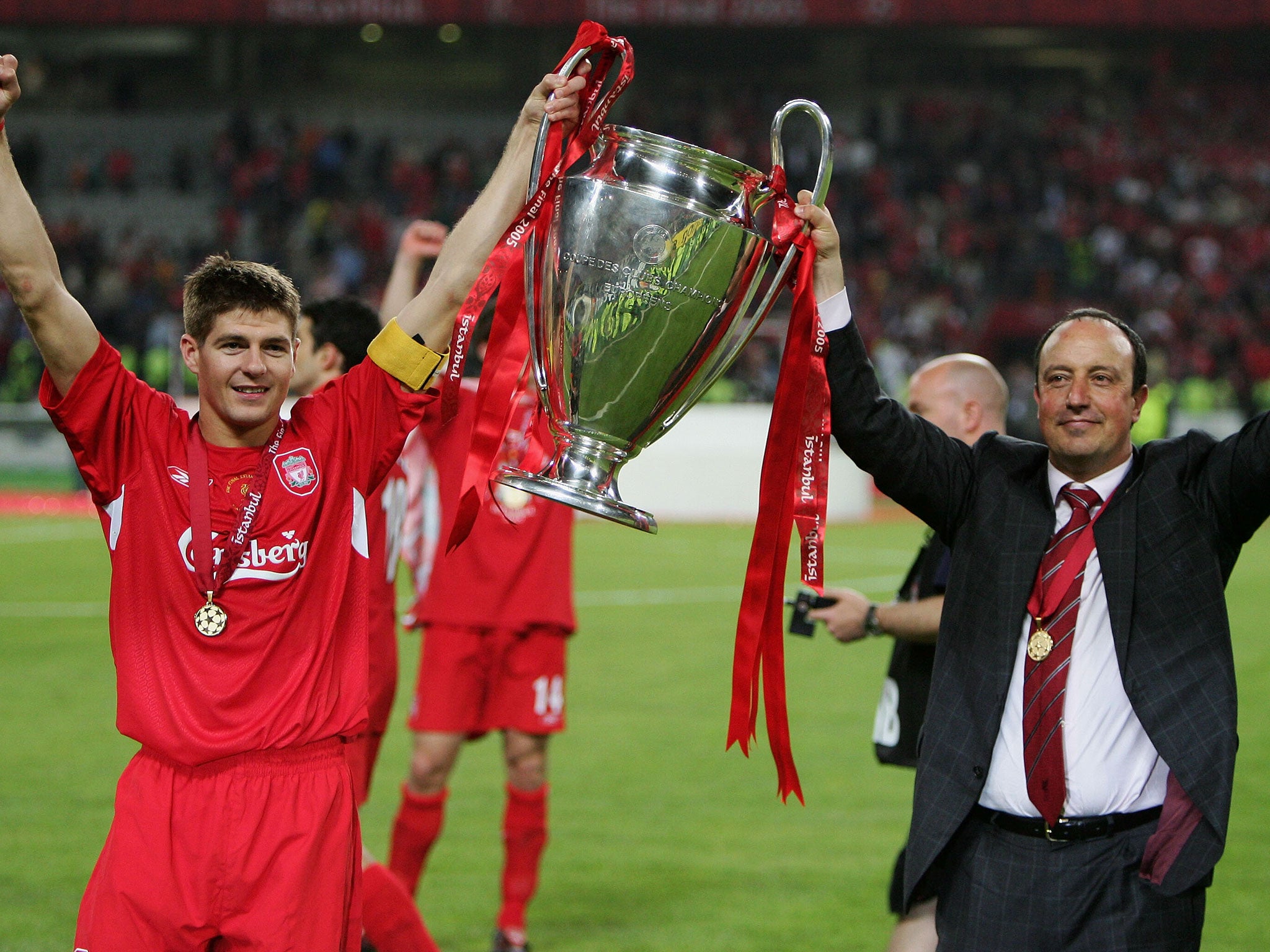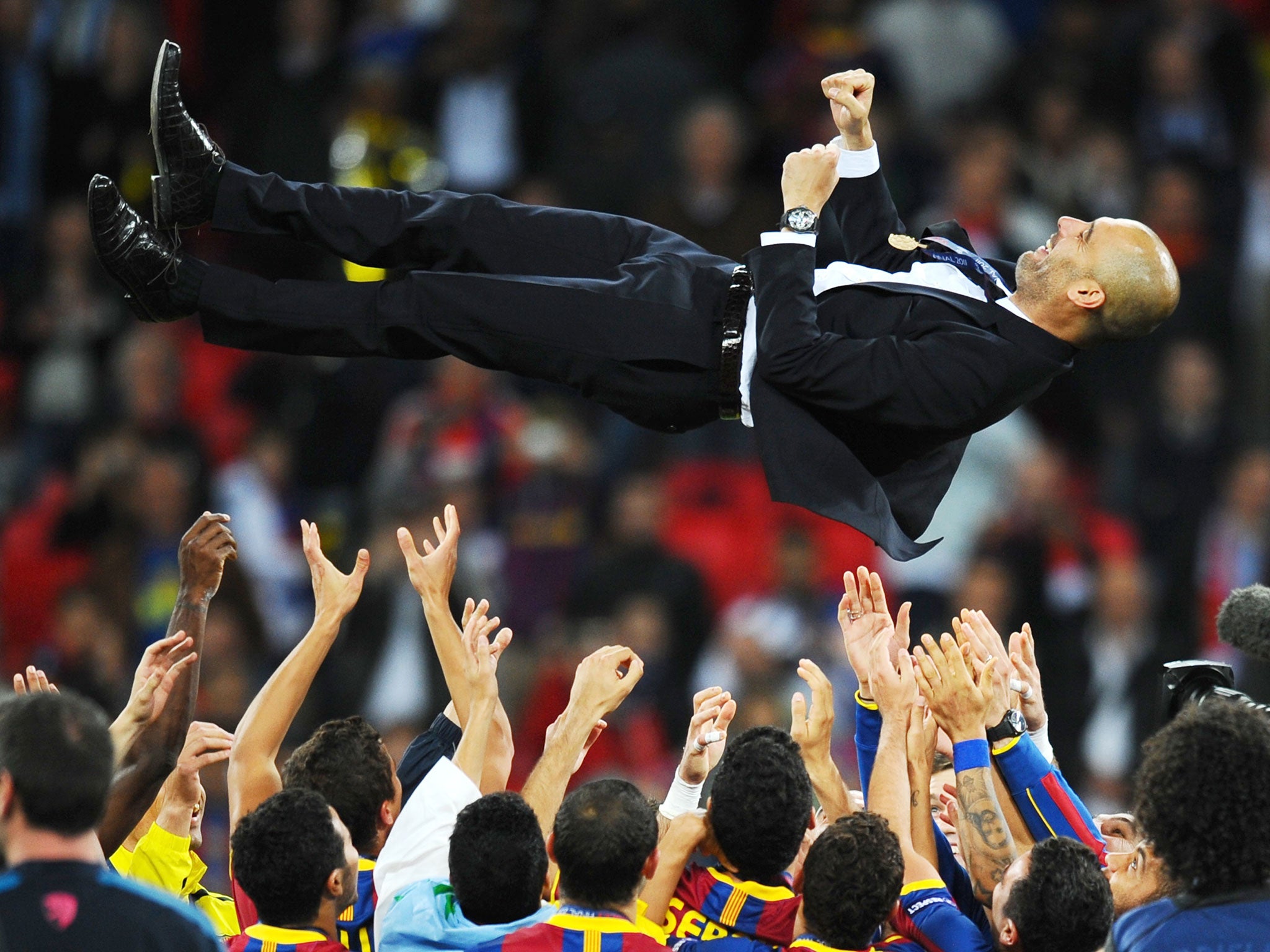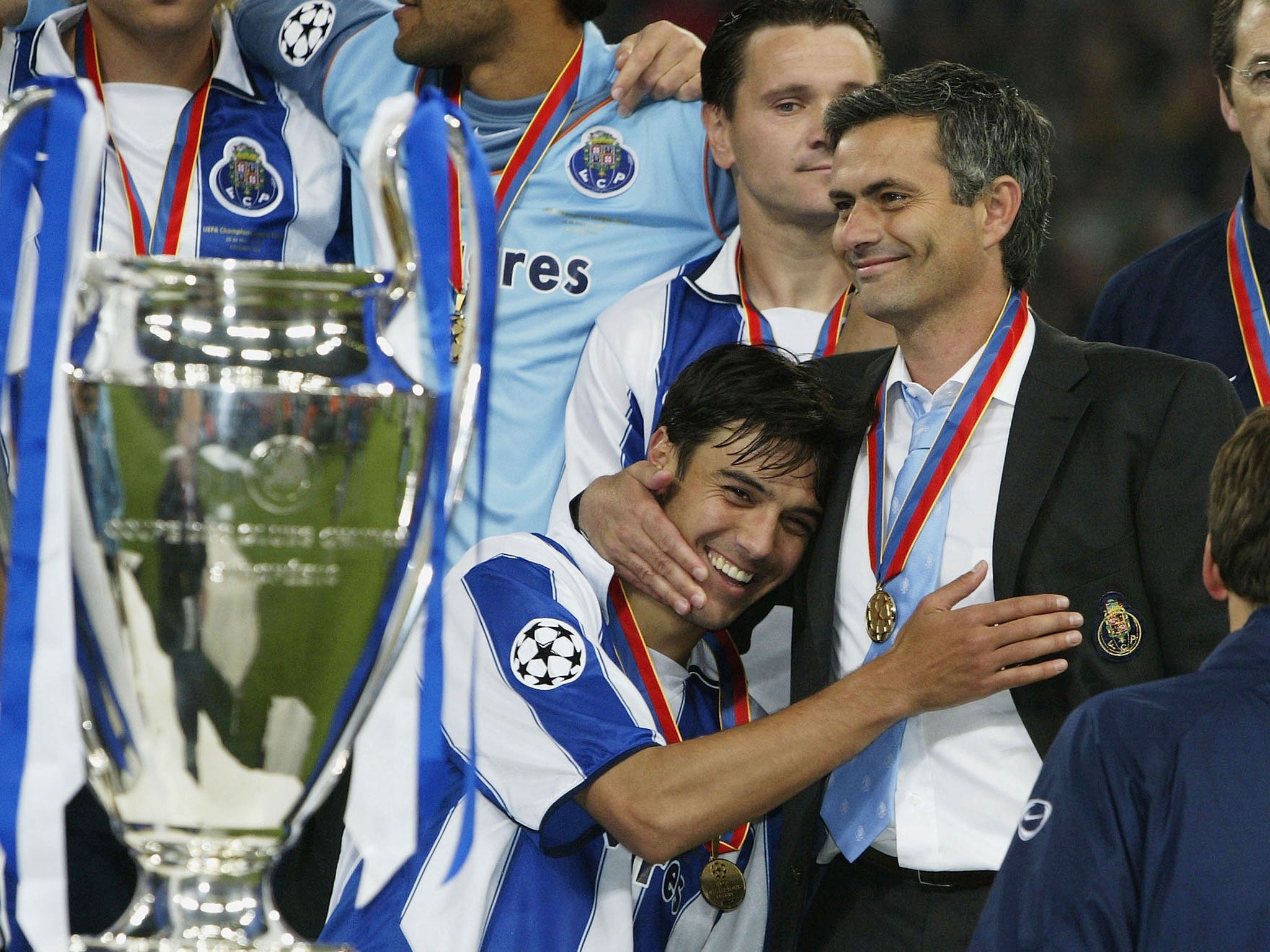How often does the best team in Europe actually win the Champions League?
How often has the modern Champions League offered up the best champion? Miguel Delaney takes a closer look at the history of Europe's premier club competition

Your support helps us to tell the story
From reproductive rights to climate change to Big Tech, The Independent is on the ground when the story is developing. Whether it's investigating the financials of Elon Musk's pro-Trump PAC or producing our latest documentary, 'The A Word', which shines a light on the American women fighting for reproductive rights, we know how important it is to parse out the facts from the messaging.
At such a critical moment in US history, we need reporters on the ground. Your donation allows us to keep sending journalists to speak to both sides of the story.
The Independent is trusted by Americans across the entire political spectrum. And unlike many other quality news outlets, we choose not to lock Americans out of our reporting and analysis with paywalls. We believe quality journalism should be available to everyone, paid for by those who can afford it.
Your support makes all the difference.At the heart of club football’s greatest competition, there is a great contradiction. The Champions League - as the old European Cup - was set up to decide Europe’s best team, but it isn’t really designed to do so. It is a competition that only ends up with the most rightful winner some of the time, and by coincidence rather than organisation.
The reasons for this are obvious, and universal to all knock-out competitions. You don’t have to play well that often to go far, freak one-off performances can have a hugely disproportionate multiplying effect, and the low number of consequential games means basic luck can have an even bigger effect. Sides can also develop that rare kind of cup momentum, where they the very occasion seems to transform them.
So, once through the group stages, a team can genuinely get to the final with just two or three properly top performances, the right draws, and riding their luck a bit. See Chelsea 2012 for that. That kind of run, meanwhile, can also suddenly eliminate a side having a sensational season who suffer one bad night. See Liverpool 2005 against Chelsea for that.
The route to last season’s final offered a classic example of the contrast. While Atletico Madrid put in four genuinely epic performances to beat two of the best sides in Europe Barcelona and Bayern Munich, Real Madrid were nowhere near that convincing. They were well beaten by an inferior side in Wolfsburg 2-0, before obviously greater individual quality carried them through, and then creaked past a limp Manchester City in two very flat last-four games. The Madrid derby of a final still swung on a series of sliding-door moments like Antoine Greizmann’s penalty and Cristiano Ronaldo’s big miss, before being decided by a shoot-out, and both had already finished behind Barcelona in the league. The Catalans had really just suffered one bad three-week spell at precisely the wrong time in what was really a rapturously good season. It can happen, and has happened to many great teams.
So, with that in mind, how often has the modern Champions League offered up the best champion?
There are a few obvious qualifiers here. First of all, it’s pretty obvious that you have had to won your league or at least gone very close as a defending champion, although it should also be accepted that some teams will naturally focus on Europe having first won the league. Performance level and the manner of elimination is key, and how out of synch the decisive match was with their general campaign, or how much it was conditioned by fundamental luck.
Season Winners / Best team
| Season | Winner | Best team |
|---|---|---|
| 1992/93 | Marseille | Milan |
| 1993/94 | Milan | Milan |
| 1994/95 | Ajax | Ajax |
| 1995/96 | Juventus | Juventus |
| 1996/97 | Borussia Dortmund | Juventus |
| 1997/98 | Real Madrid | Juventus |
| 1998/99 | Manchester United | Manchester United |
| 1999/00 | Real Madrid | Bayern Munich |
| 2000/01 | Bayern Munich | Bayern Munich |
| 2001/02 | Real Madrid | Real Madrid |
| 2002/03 | Milan | Real Madrid |
| 2003/04 | Porto | Arsenal |
| 2004/05 | Liverpool | Chelsea |
| 2005/06 | Barcelona | Barcelona |
| 2006/07 | Milan | Chelsea |
| 2007/08 | Manchester United | Manchester United |
| 2008/09 | Barcelona | Barcelona |
| 2009/10 | Inter | Barcelona |
| 2010/11 | Barcelona | Barcelona |
| 2011/12 | Chelsea | Barcelona |
| 2012/13 | Bayern Munich | Bayern Munich |
| 2013/14 | Real Madrid | Atletico Madrid |
| 2014/15 | Barcelona | Barcelona |
| 2015/16 | Real Madrid | Barcelona |

So, how often has the Champions League thrown up the most rightful winner? We say 10 out of 24. Here’s why.
1992-93: even before you get to the fact Marseille were stripped of the French title for match-fixing, a narrow 1-0 final win doesn’t negate the reality Milan were this era’s best side.
1993-94: there was probably much of a muchness between Milan and Barcelona at this point, but the fact the Italians won the final so heavily 4-0 with so many absentees, proved their status.
1994-95: Ajax were the team that rightfully gave Louis van Gaal his reputation, as their high-speed football saw them beat Milan home, away and then on neutral ground in the final.
1995-96: Ajax may have been champions, but Juventus had a power and maturity beyond them that season. Players from the Dutch side would later complain about the source of that power
1996-97: a good team, Dortmund were never as convincing as Juve had been throughout the campaign, but being convincing on the same night was enough.
1997-98: it was much the same in 1997-98 as 1996-97, although questions remain about that Juventus.
1998-99: It may have gone to those spectacular last few minutes but, given how Manchester United had won two other trophies and so many matches against so many other big sides in exactly that way, it was really the most appropriate manner to proclaim their superiority
1999-00: A Real Madrid between the old order and the Galactico era, that saw them finish as low as fifth in Spain, but thereby capable of catching out odd gaps in superior Manchester United and Bayern teams.
2000-01: Still motivated by the devastation of 1999, Bayern had a focus that put them beyond anyone else.
2001-02: In their centenary year, this was the trophy Real wanted most, and they won it with a goal for the ages. It may have seen them fade in defending the Spanish title, but they were capable of greater performances on the greater stage. Zinedine Zidane’s strike reflected the level they were at.
2002-03: Milan were thrashed by Real in the group stage, and beaten by Juventus in Serie A, but then benefitted from the latter eliminating the former in the semis to win on penalties
2003-04: Arsene Wenger’s great missed opportunity, and Jose Mourinho’s great launchpad moment. Porto could well have beaten Arsenal, but the key to that team was how they performed so above themselves.

2004-05: Liverpool may have been a side possessed in Europe, but they still needed many borderline moments and a remarkable late Eidur Gudjohnsen miss to eliminate a Chelsea side running away with the title.
2005-06: having glided to the final through their raucous football, Barca then showed a different side and real resilience to win it. There was no other rightful winner that year.
2006-07: A Carlo Ancelotti side did what a Carlo Ancelotti side often do, and overcame a poor domestic season to raise their level on the continent, but might it have been different had Chelsea not lost to European bogey team.
2007-08: It might have gone to penalties in the final, but Manchester United had already beaten Chelsea to the title. They also had Europe’s best defence, best attacker, and most complete side.
2008-09: Barcelona may have rode their luck in the second leg against Chelsea but, by the time they had dismantled Manchester United, they had risen to a new level.
2009-10: it could be argued it took more than Inter’s defence to stop Barcelona, but also a volcano, an injury to Andres Iniesta, and a late goal wrongly disallowed. At the same time, the effort made the Italians deserving winners.
2010-11: no debates here, because there were simply no equals to Barca. A great side’s peak.
2011-12: another semi-final when Barcelona were denied by an improbably sequence of events, not least some ludicrous missed chances in the first leg and Leo Messi missing a spot-kick in a year when he broke a historic goals record, but Chelsea also had that rare cup momentum.
2012-13: from the start, there was only one winner - the Bayern team so ferociously driven by the previous season’s final defeat
2013-14: Atletico won the Spanish league and were mere seconds from deservedly winning the Champions League too. It was just their luck that, in the biggest match, they faced the team they have the biggest complex with - their rivals.
2014-15: a treble says enough, as does the fact this Barca were being debated as potentially better than the Guardiola side.
2015-16: Real were second best to Barca at home, but again benefitted from Atletico’s ability to frustrate the Catalans… and Atletico’s frustrations with facing Real.
Join our commenting forum
Join thought-provoking conversations, follow other Independent readers and see their replies
Comments